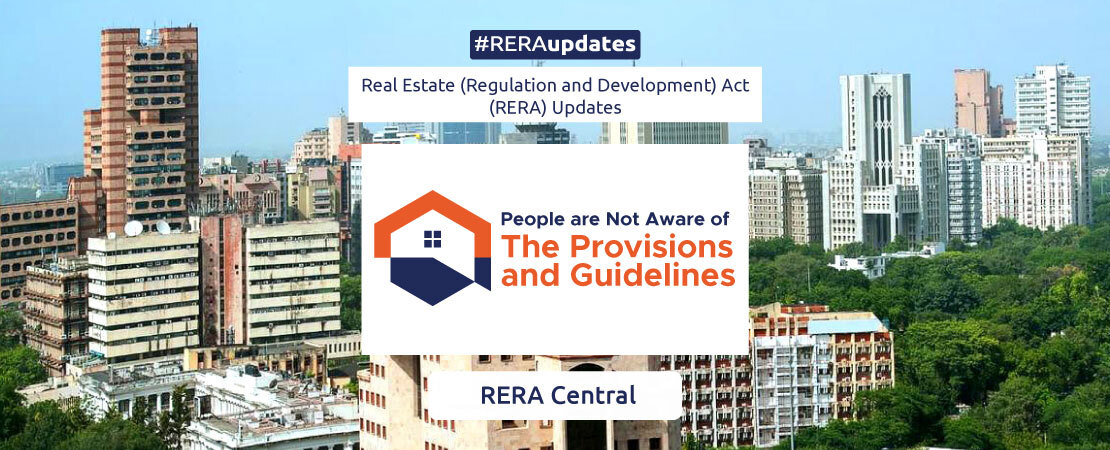Secretary of Consumer Affairs Ministry, Rohit Kumar Singh said that the government has decided to form a committee to work on a model builder-buyer agreement to simplify the home-buying process and protect homebuyers from potential abuses.
Model Builder-Buyer Agreement To Simply the Home-Buying Process
He said this after the first Round Table Conference on How to Effectively Redress the Grievances Pertaining to Real Estate Sector, in Mumbai on Tuesday.
He said that this builder-buyer agreement could help reduce disputes between home-buyers and builders, and ensure that consumers have access to an effective, speedy, hassle-free, and inexpensive grievance redressal mechanism.
He added that by putting these measures like model buyer-builder agreements and effective grievance redressal mechanisms in place, the backlog of cases can be redressed and ensure that home-buyers are treated fairly and protected from potential abuses in future.
With members drawn from the National Consumer Commission, state consumer commissions, Real Estate (Regulation and Development) Act, 2016 (RERA), Department of Consumer Affairs (DCA), Insolvency and Bankruptcy Board of India (IBBI) and builders as members to address the grievances of home-buyers and enhance consumer protection.
Speaking about the timeline of the formation of the committee, he said that they would “try and do it in the next three months. Stakeholders have to be collected from different sectors. It will be a landmark thing if it is done as it will at least give uniformity in handling of this sector across the country. It will be a template,” he said.
The disputes that exists between the home buyers as well as the developers could be resolved to some degree if the contract between the builders and buyers is standardised and uniformity is brought about. Singh said that the document should be unique as well as applicable across the country.
If this is done, the problem can be solved to some extent.
It was in association with the Government of Maharashtra that the roundtable was hosted by the DCA. He said that it was also the Supreme Court (SC) which had directed the need of having a model agreement across the country, and added that some states already have such a document in place.
There is an alarming need to put a system in place for the speedy justice and streamlining the process for homebuyers as it was seen that out of over 5.5 lakh cases currently awaiting resolution, over 54,000 cases relate to the housing sector.
These cases are due to various issues, 45% due to delay in possession; 12% to execution of sale deed, refund and withdrawal from project 12%; amenities 12%; and poor construction quality 12%, among others issues.
The Maharashtra Consumer Commission is faced with the maximum number of cases at 15,154 cases filed. Of this, about 8,718 have been disposed of, while 6,436 are still pending. In Delhi, 8,178 cases have been filed, of which 5,266 have been disposed of, and 2,912 are still pending. In Uttar Pradesh, 8,133 cases have been filed, of which 7,024 have been disposed of, and 1,109 cases are pending, show statistics from the ministry.
He also said that the agreement should be in simple language. “It is the common man who is buying. Therefore, the engagement between the buyer and the seller should be as simple as possible.”
Key Issues & Key Suggestions
The key issues identified by the home-buyers are:
• Delay in delivery of possession of property to home-buyers
• No compensation for delay in possession to home-buyers
• Biased, one-sided, and unfair builder-buyer agreements
• Amenities not provided to home-buyers as per the agreement
• Misleading advertisements by developers and influencers for luring home-buyers
• Non-adherence to the model builder-buyer agreement proposed by RERA.
The key suggestions to fix these were
• Sending draft agreement to buyers before execution
• Clearly mentioning permissions and sanctions obtained from competent authorities on the first page of the agreement
• Prohibiting builders from launching projects before obtaining all necessary permissions and sanctions
• Including an exit clause for home-buyers in all agreements that would be valid until the Occupancy Certificate (OC) or Completion Certificate (CC) is obtained and possession is offered by the builder
• Including a schedule of additional charges beyond the cost of the unit/apartment in all agreements.
• Include mandatory declarations regarding no dues from any authority/banks
• Necessary legal sanctions and approvals from competent authorities
• Strong action should be against unfair and misleading advertisements by developers
Source: https://trak.in/stories/govt-wants-real-estate-to-be-fair-transparent-with-a-buyer-builder-agreement-model-across-india/










